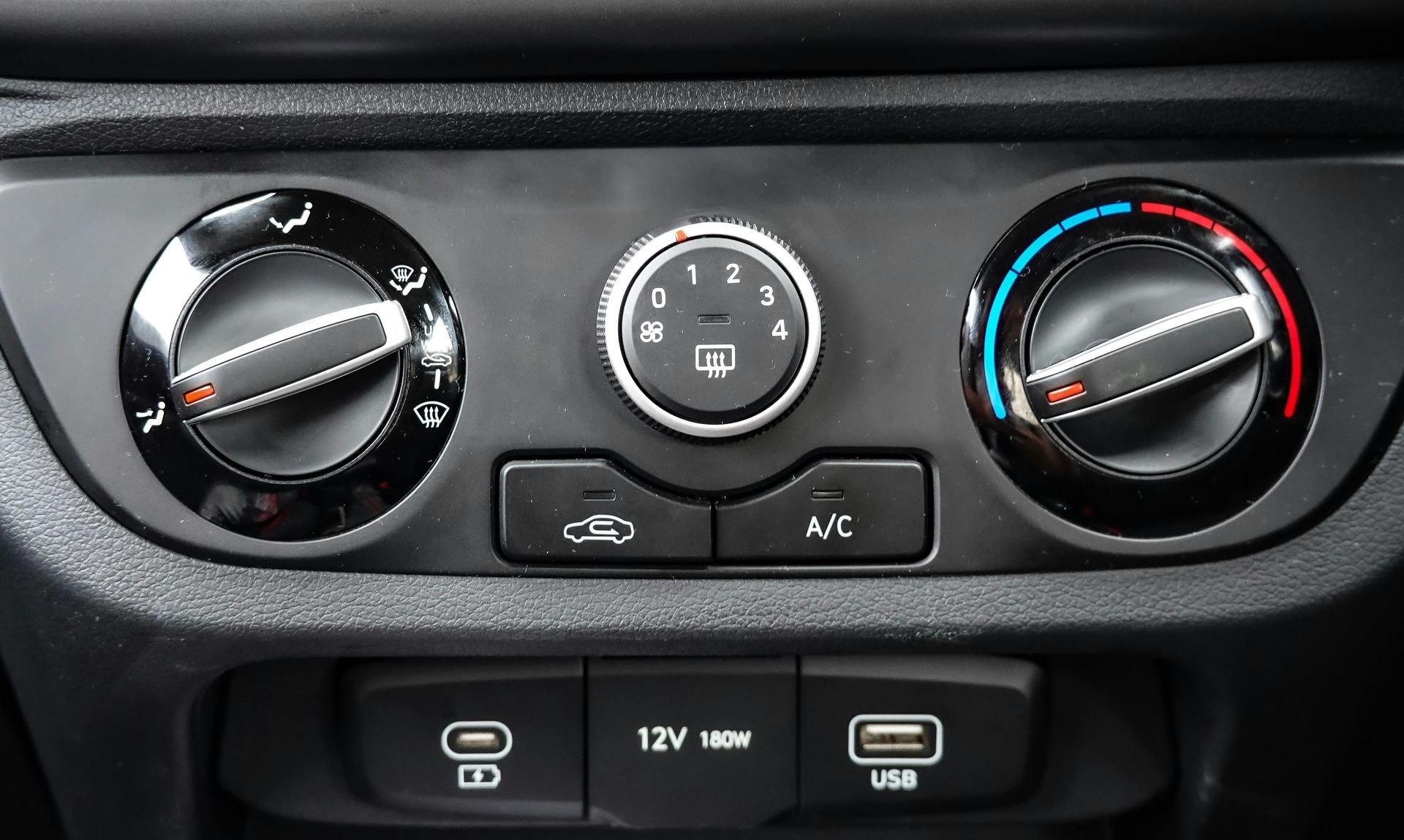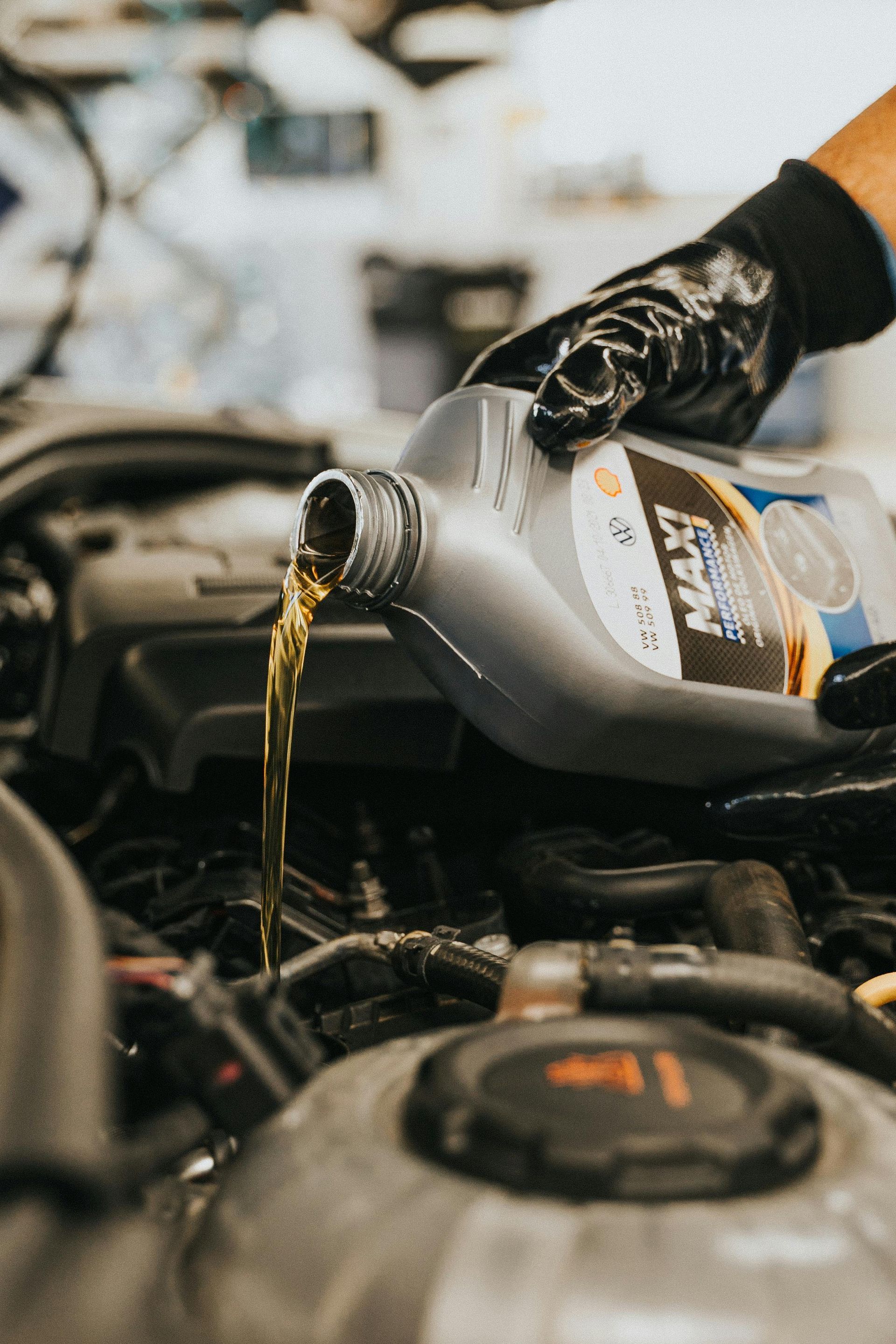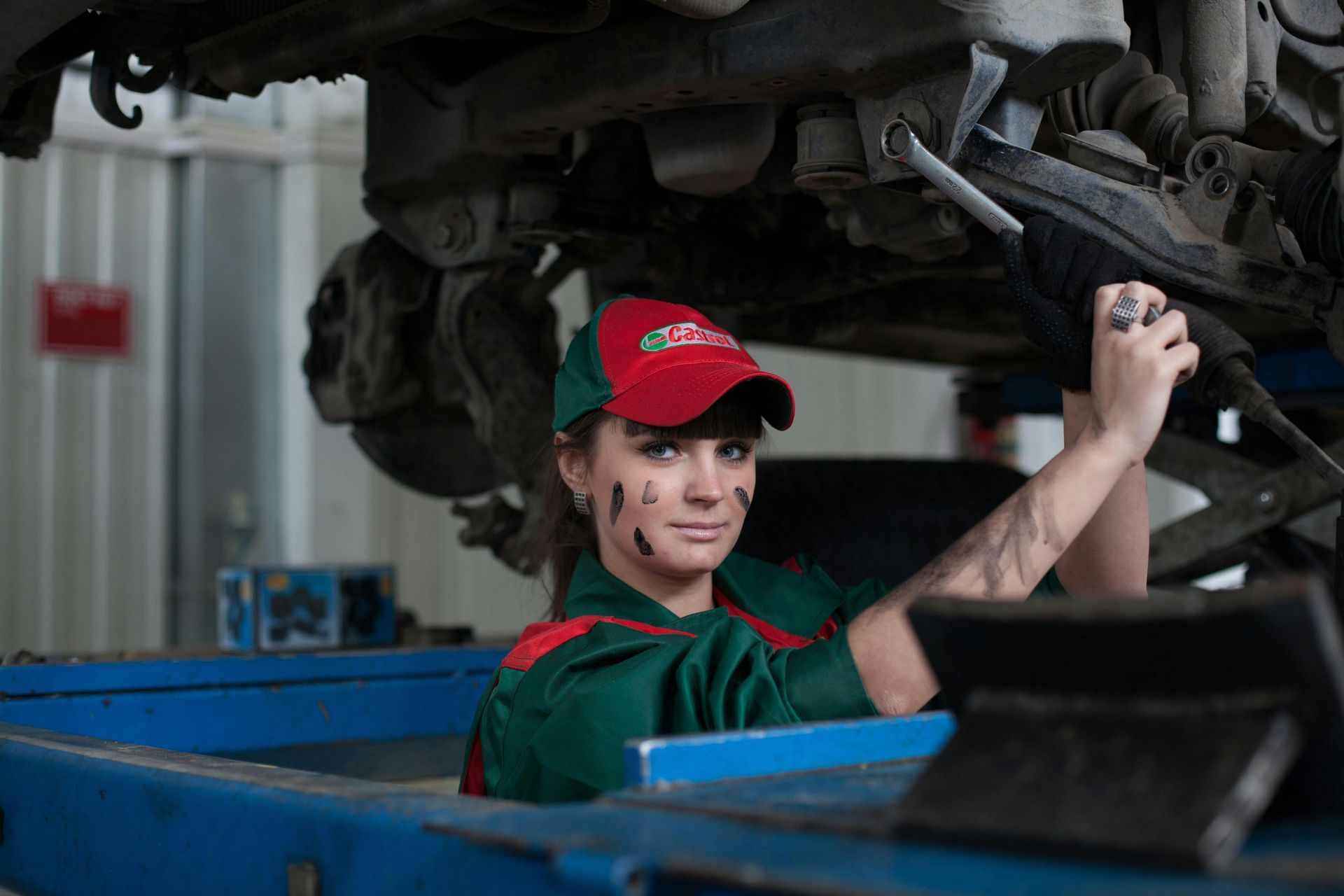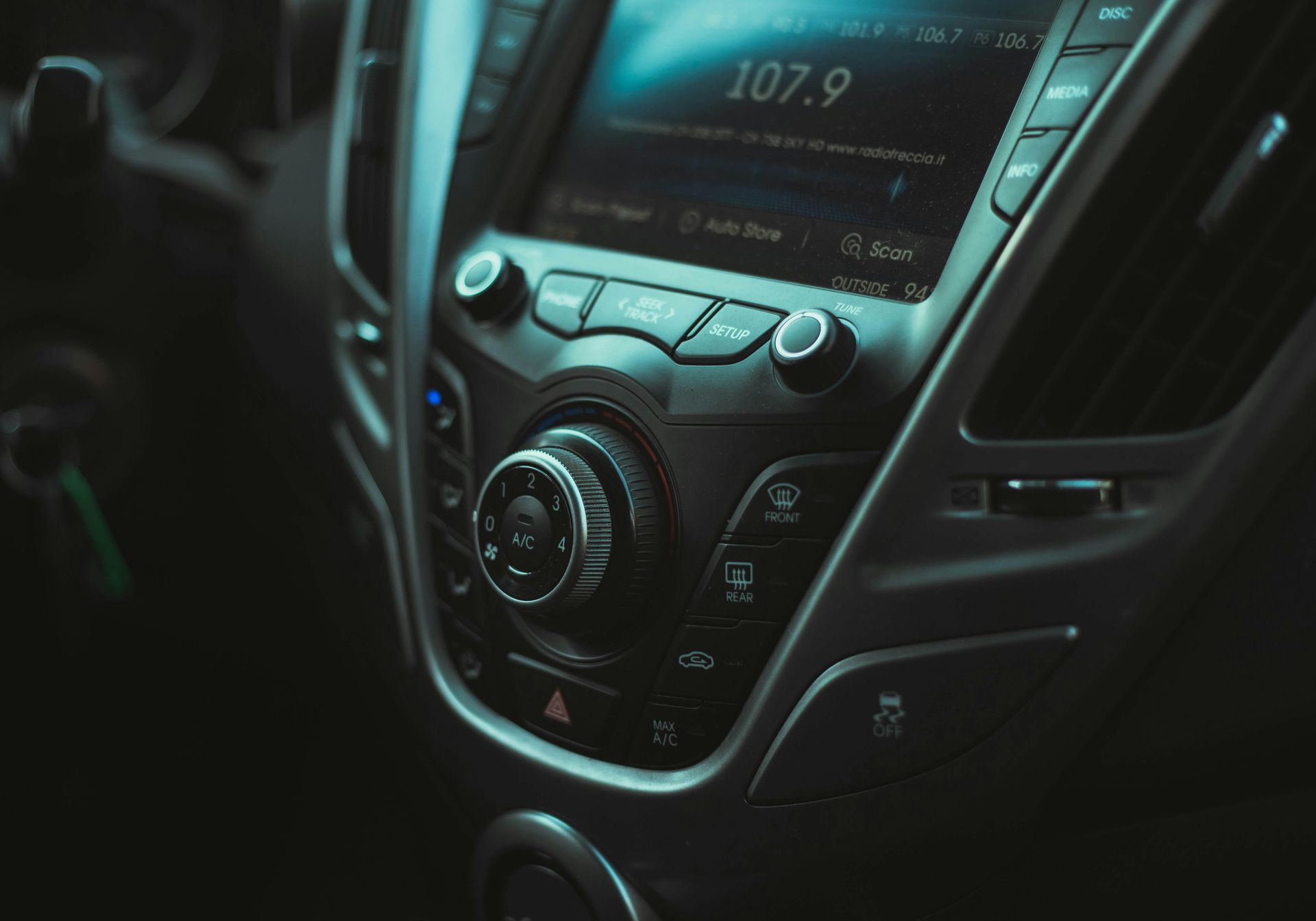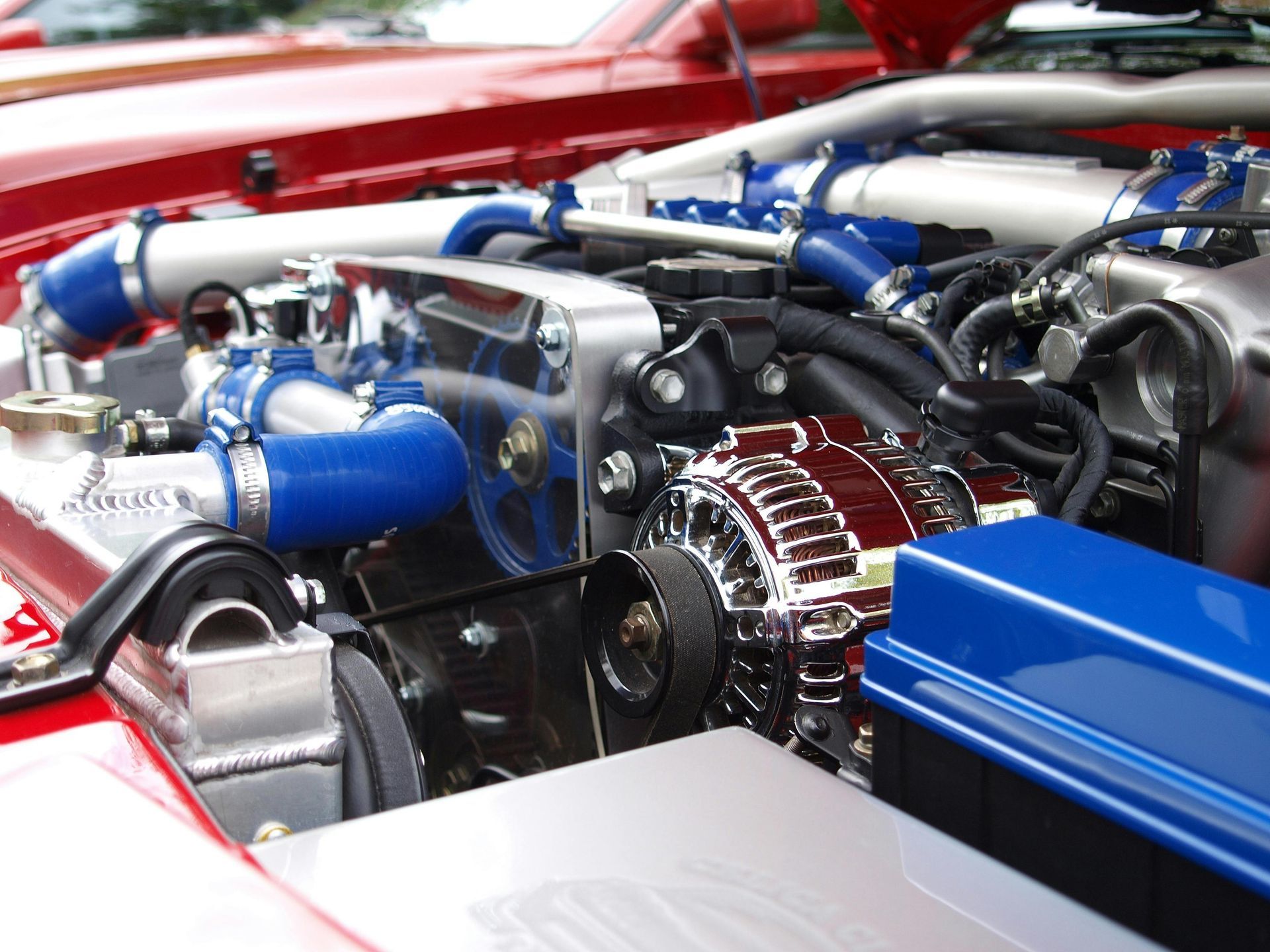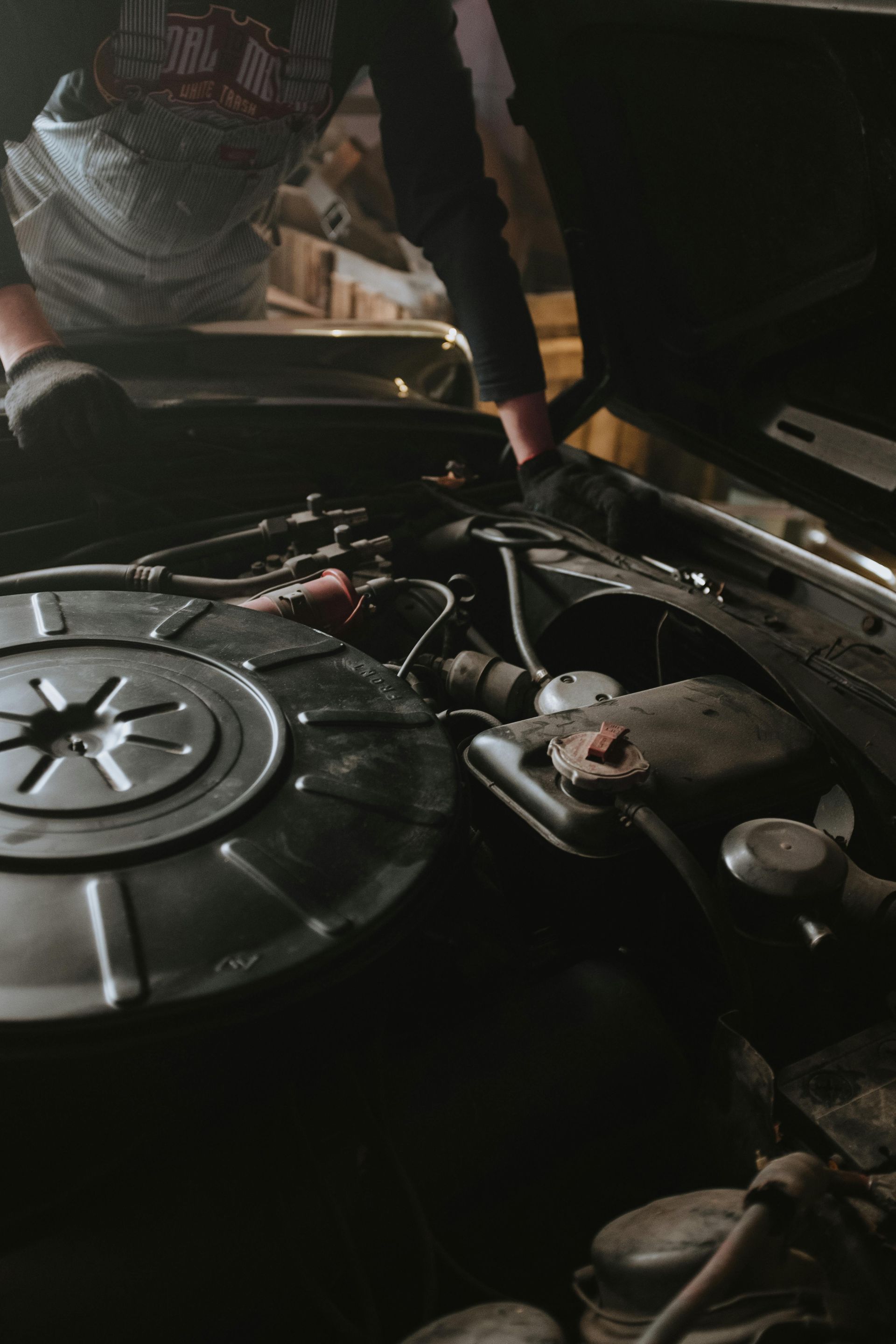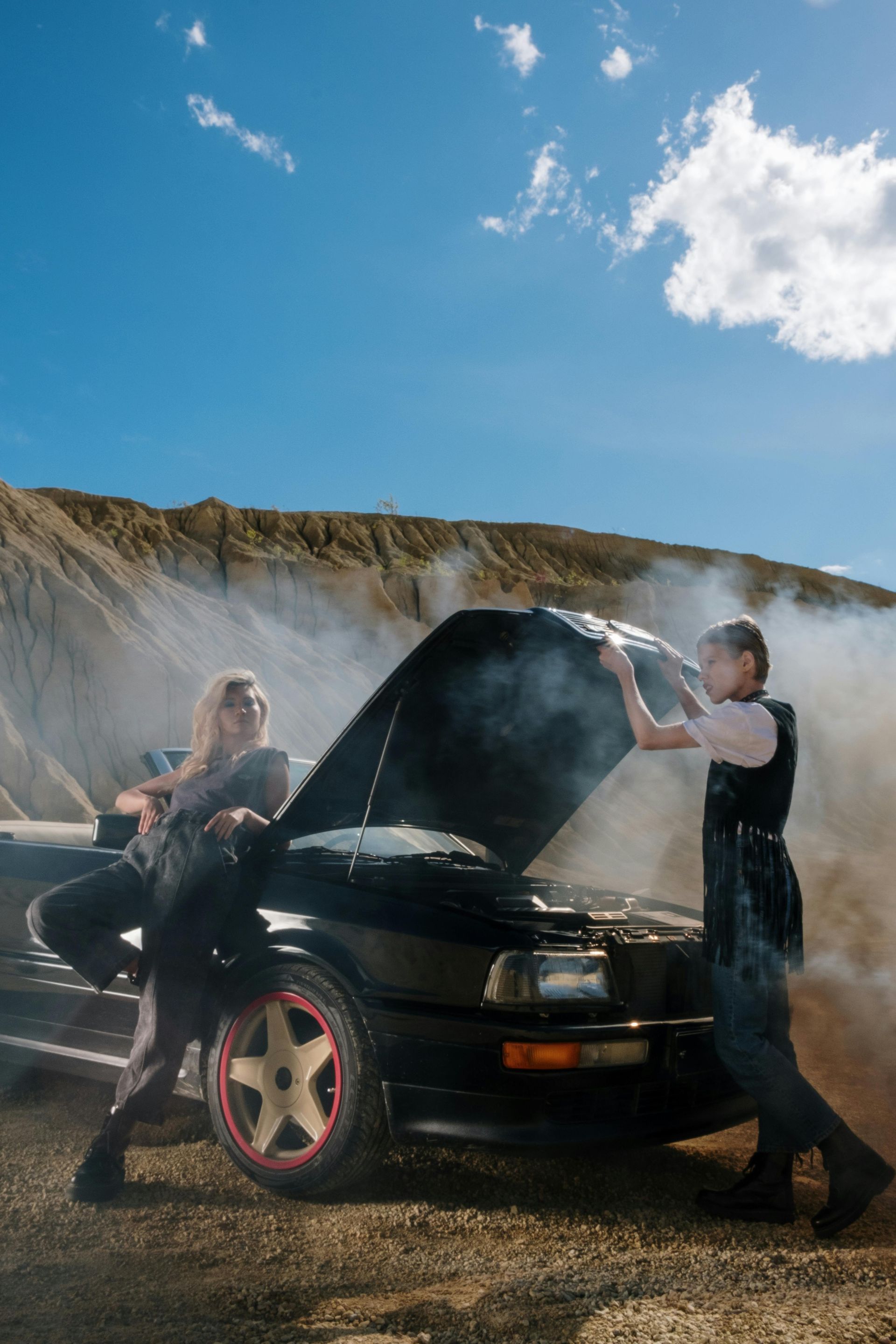Fall Vehicle Preparation Guide for Colorado Springs Drivers
Fall in Colorado Springs brings stunning aspen colors, crisp mountain air, and some of the year's most beautiful driving weather. But it also brings unique challenges that can catch unprepared drivers off guard. From sudden temperature drops to early snowfall in the higher elevations around Pikes Peak, your vehicle needs to be ready for Colorado's unpredictable fall conditions.
Here's your complete guide to getting your car ready for everything fall weather can throw at you in the Colorado Springs area.
Check Your Battery Before Cold Weather Hits
Why fall battery checks matter: Car batteries lose about 20% of their power when temperatures drop from 80°F to 32°F. In Colorado Springs, you might experience both temperatures in the same week during fall. Add our high altitude into the mix, and battery failures become much more common.
Warning signs of battery trouble:
- Engine cranks slowly on cold mornings
- Headlights dim when idling
- Dashboard warning lights appear intermittently
- Corrosion around battery terminals
- Battery case looks swollen or cracked
Fall battery maintenance:
- Clean terminals and apply protective spray
- Test battery capacity and charging system
- Replace batteries over three years old
- Keep jumper cables in your vehicle
Colorado Springs tip: Temperature swings between the city (6,035 feet) and nearby mountain areas can be dramatic. If you regularly drive to higher elevations, your battery works even harder.
Inspect Your Heating System
Nothing's worse than discovering your heater doesn't work during the first cold snap. Fall is the perfect time to test your heating and defrosting systems before you really need them.
Test these heating components:
- Cabin heater output and temperature
- Defrost function for windshield and rear window
- Blower motor at all speeds
- Temperature control accuracy
Common heating problems:
- Clogged cabin air filter reduces airflow
- Low coolant affects heater core function
- Thermostat problems prevent proper heating
- Blower motor issues cause weak airflow
Prepare for Sudden Weather Changes
Colorado Springs weather can change quickly during fall. One day you're driving with windows down, the next you're dealing with frost or even snow. Your vehicle needs to handle these rapid transitions smoothly.
Weather preparation checklist:
- Check windshield wiper condition and operation
- Test windshield washer fluid system
- Inspect tire tread depth for wet road traction
- Verify all lights work properly for shorter days
- Clean inside windows to prevent fogging
Mountain driving considerations: If you plan to visit areas like Woodland Park, Cripple Creek, or the Pikes Peak region during fall, be prepared for more extreme weather changes with elevation.
Tire Inspection and Preparation
Fall tire maintenance is crucial in Colorado Springs. While you might not need winter tires yet, your current tires need to handle wet leaves, frost, and potentially early snow.
Tire inspection points:
- Tread depth should be at least 4/32 inch for wet weather traction
- Look for uneven wear patterns that indicate alignment issues
- Check for sidewall cracks or bulges
- Ensure proper tire pressure (it drops with temperature)
All-season tire evaluation: Most Colorado Springs drivers use all-season tires year-round. Fall is a good time to evaluate whether your tires will make it through winter or need replacement.
Spare tire check: Don't forget your spare tire. Fall weather increases the chance you'll need it, especially on mountain roads with temperature-related pressure changes.
Cooling System Winterization
Your cooling system works year-round, not just in summer. Fall maintenance prevents freeze damage and ensures proper heating system operation during colder months.
Coolant system maintenance:
- Test coolant mixture for proper freeze protection
- Inspect hoses for cracks or soft spots
- Check radiator cap and overflow tank
- Look for signs of coolant leaks
- Flush system if coolant is more than two years old
Colorado-specific concerns: High altitude and temperature extremes put extra stress on cooling system components. Even small leaks can become big problems when temperatures drop.
Brake System Performance
Fall weather conditions like wet leaves, frost, and occasional snow require reliable braking performance. Now's the time to address any brake issues before conditions become challenging.
Brake inspection checklist:
- Listen for squealing or grinding noises
- Feel for vibration when braking
- Check brake fluid level and color
- Test parking brake operation
- Inspect brake pads and rotors
Wet weather braking: Fall precipitation and morning frost create slippery conditions. Properly maintained brakes are essential for safe stopping on Colorado's mountain roads.
Lighting System Check
Shorter fall days mean you'll use your lights more often. Colorado's mountain terrain can create deep shadows even during daylight hours, making good lighting essential for safety.
Complete lighting inspection:
- Test headlights on both low and high beam
- Check all turn signals and hazard lights
- Verify brake lights and reverse lights work
- Clean lens covers for maximum brightness
- Replace any burned-out bulbs
Visibility improvements: Consider upgrading to brighter halogen or LED bulbs for better visibility during Colorado's shorter fall days.
Emergency Kit Updates
Fall weather can be unpredictable in Colorado Springs. Having the right emergency supplies can turn a minor inconvenience into a manageable situation.
Fall emergency kit essentials:
- Warm blankets or sleeping bags
- Extra clothing and waterproof layers
- Non-perishable food and water
- Flashlight with extra batteries
- First aid kit
- Ice scraper and snow brush
- Sand or kitty litter for traction
- Jumper cables or battery pack
Fluid Level Checks
Cold weather affects all your vehicle's fluids. Fall is the perfect time to check levels and change fluids that have been working hard through the summer driving season.
Important fluids to check:
- Engine oil condition and level
- Brake fluid color and level
- Power steering fluid
- Transmission fluid
- Windshield washer fluid (use winter formula)
Air Filter Replacement
Summer driving in Colorado Springs means dust, pollen, and particles from unpaved mountain roads. A clean air filter improves engine performance and fuel economy, which becomes more important as driving conditions become more demanding.
Filter replacement benefits:
- Better engine performance in thinner mountain air
- Improved fuel economy
- Reduced engine wear
- Better throttle response
Professional Fall Inspection
While you can check many items yourself, a professional fall inspection can catch problems you might miss. This is especially valuable before Colorado's unpredictable winter weather arrives.
Professional inspection advantages:
- Comprehensive system testing
- Early problem detection
- Expert advice on Colorado driving conditions
- Warranty coverage on repairs
- Peace of mind for fall and winter driving
Timing Your Fall Maintenance
Don't wait until the first snow warning to think about fall preparation. Early fall maintenance gives you time to address any issues before emergency repairs become necessary.
Ideal timing:
- September: Basic inspections and fluid checks
- Early October: Tire and battery services
- Late October: Final preparations before winter weather
Stay Ahead of Colorado Weather
Fall in Colorado Springs offers some of the year's best driving conditions, but being prepared makes all the difference between enjoying the season and being stranded by unexpected weather changes.
From daily commutes through the city to weekend adventures in the mountains, proper fall vehicle preparation ensures you're ready for whatever Colorado throws your way. Don't let a preventable breakdown ruin your plans or put your safety at risk when conditions change quickly.
Schedule your fall vehicle inspection today. Our experienced technicians know exactly what Colorado Springs drivers need to stay safe and reliable through fall's changing conditions. We'll check all the critical systems and help you prepare for the months ahead. Drive confidently through every fall adventure knowing your vehicle is ready for Colorado's unique challenges.
